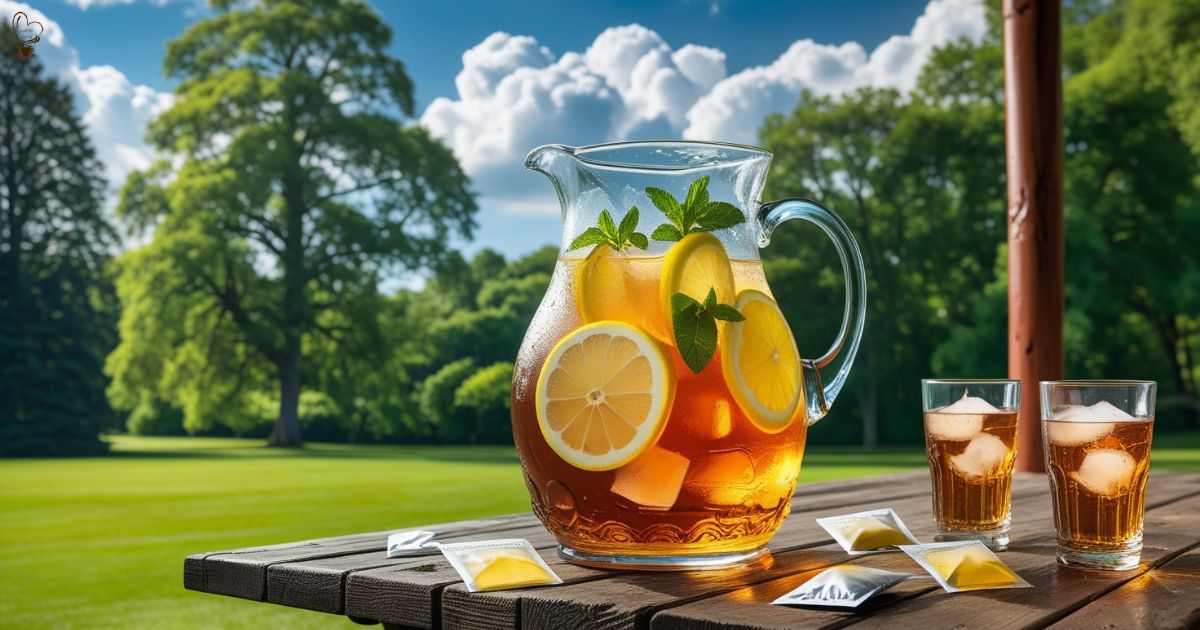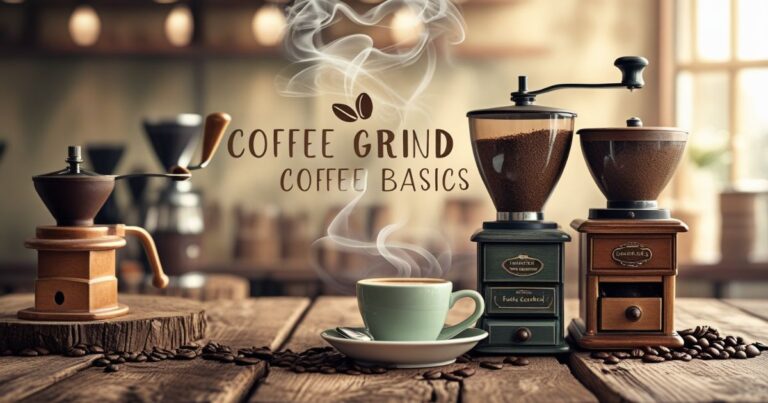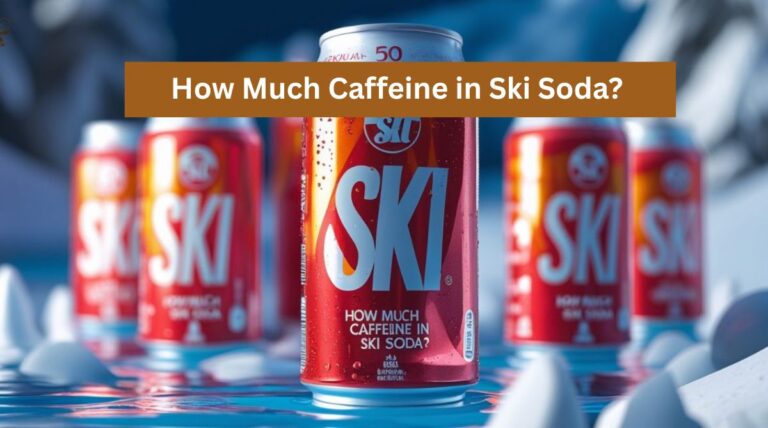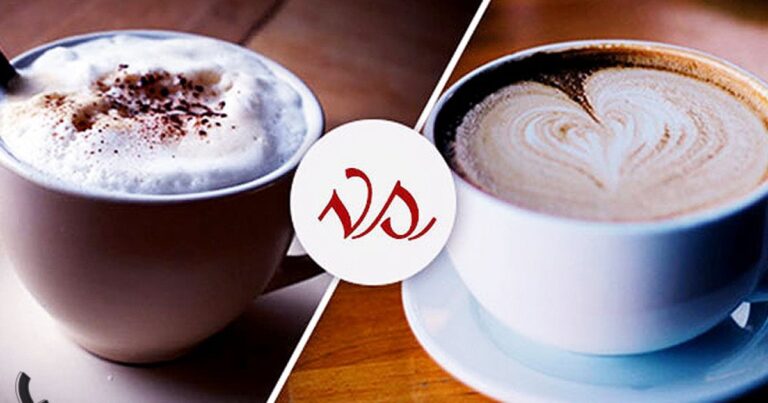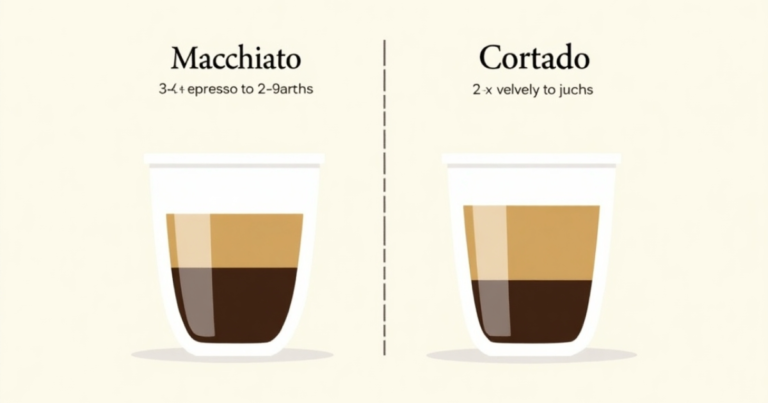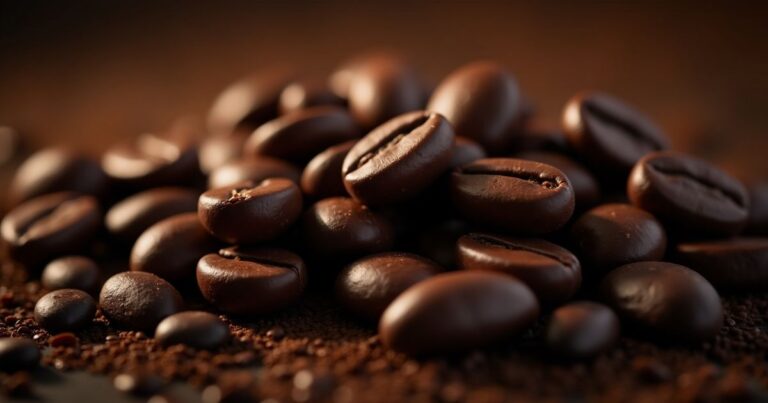Does Sweet Tea Have Caffeine? 7 Eye-Opening Truths Revealed!
Sweet tea is a beloved beverage, especially in the southern United States, known for its refreshing taste and signature sugary flavor. However, one of the most commonly asked questions about sweet tea is:
👉 Does sweet tea have caffeine?
Since sweet tea is made from black tea, it naturally contains caffeine. But the exact amount of caffeine in sweet tea depends on various factors, such as brewing time, type of tea leaves, and serving size.
Here, we’ll uncover 7 eye-opening truths about caffeine in sweet tea, how it compares to other beverages, and how to reduce caffeine if you prefer a lighter option.
1. What is Sweet Tea and Why Does It Contain Caffeine?
Sweet tea is a black tea-based beverage that is brewed with sugar and then served over ice.
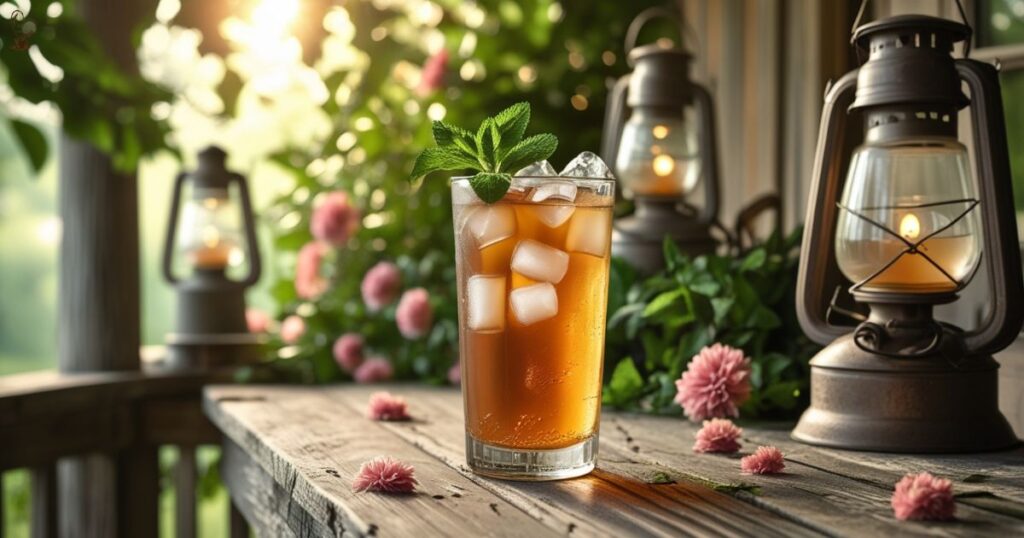
Unlike unsweetened iced tea, sweet tea is often made extra strong to balance the sweetness, which can result in higher caffeine content in drinks.
Why Does Sweet Tea Have Caffeine?
Since sweet tea is made with black tea leaves, it naturally contains caffeine. The caffeine content depends on:
✔️ Tea Type – Black tea contains more caffeine than green or white tea.
✔️ Brewing Time – The longer you steep the tea, the more caffeine is extracted.
✔️ Tea Quality – Higher-quality tea leaves tend to have more caffeine.
👉 Key Takeaway: If you’re looking to reduce caffeine, consider using green tea or a shorter steeping time.
2. How Much Caffeine is in Sweet Tea?
The caffeine in sweet tea varies based on preparation, but here’s a rough estimate:
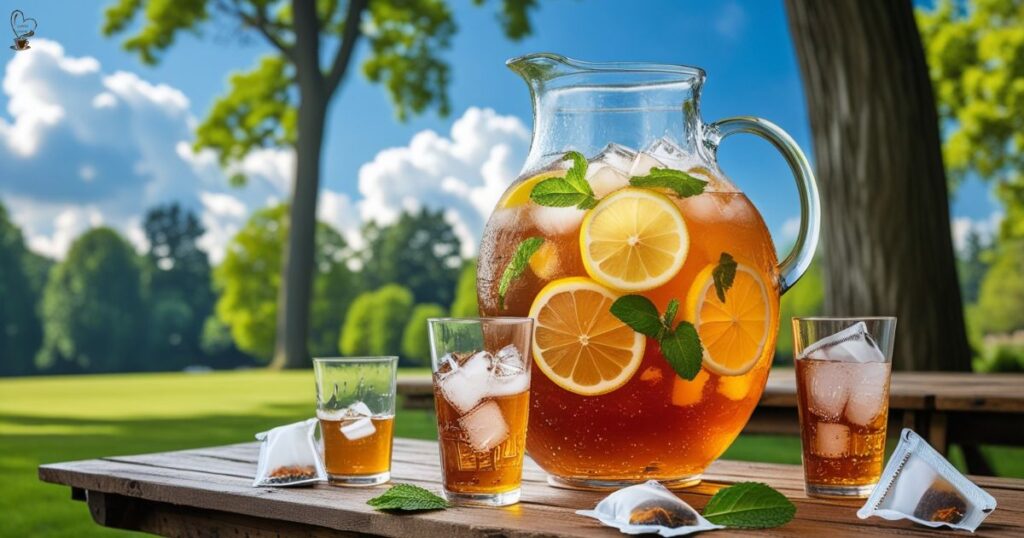
| Beverage | Caffeine Content (Per 8 oz) |
|---|---|
| Sweet Tea | 20-50 mg |
| Unsweet Tea | 20-60 mg |
| Coffee | 95 mg |
| Green Tea | 25-45 mg |
| Soda | 30-40 mg |
How Does This Compare to Coffee?
If you’re wondering caffeine in iced tea vs coffee, coffee typically has twice as much caffeine as sweet tea.
👉 Key Takeaway: Sweet tea is a great alternative to coffee if you want a milder caffeine boost.
3. Does Sweet Tea Have More Caffeine Than Iced Tea?
Not necessarily! Caffeine in iced tea depends on the same factors as sweet tea. However, sweet tea is often brewed stronger, so it may contain more caffeine per serving.
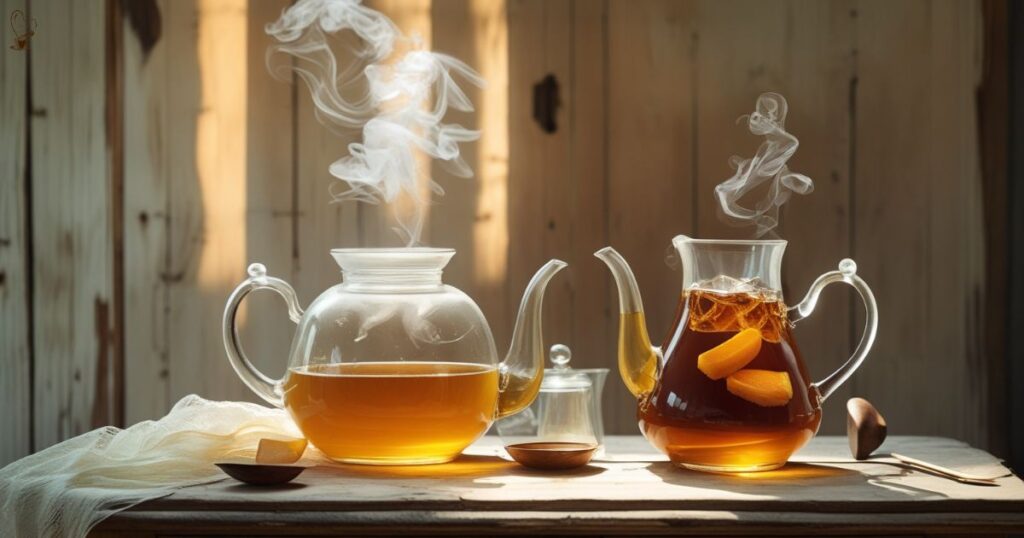
🔹 How much caffeine in iced tea?
- Sweet Tea: 20-50 mg per 8 oz
- Unsweetened Iced Tea: 20-60 mg per 8 oz
👉 Key Takeaway: Both sweet tea and iced tea contain caffeine, but brewing strength plays a major role in caffeine levels.
4. Caffeine in Iced Tea vs Coffee – Which One Has More?
Many people switch to sweet tea or iced tea as a coffee alternative, but how does their caffeine compare?
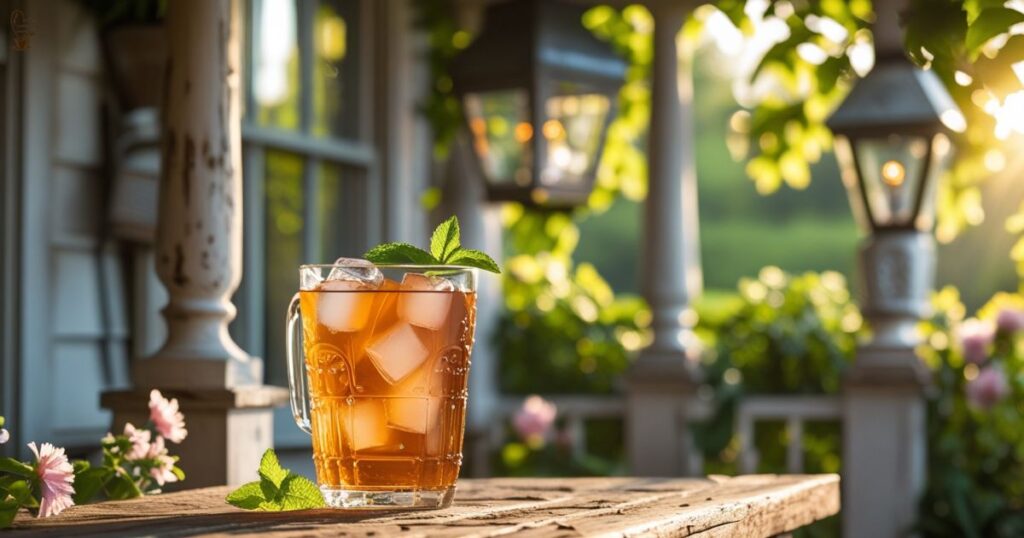
- Coffee: ~95 mg per 8 oz
- Sweet Tea: ~20-50 mg per 8 oz
- Iced Tea: ~20-60 mg per 8 oz
Is Sweet Tea a Good Alternative to Coffee?
✔️ Yes, if you want a mild caffeine boost
❌ No, if you need a high caffeine kick
👉 Key Takeaway: Iced tea and sweet tea have significantly less caffeine than coffee.
5. What are the Effects of Caffeine in Sweet Tea?
Caffeine in sweet tea has both positive and negative effects depending on your tolerance.
✔️ Benefits of Caffeine in Sweet Tea:
- Boosts energy and alertness
- Improves focus and concentration
- Contains antioxidants that support heart health
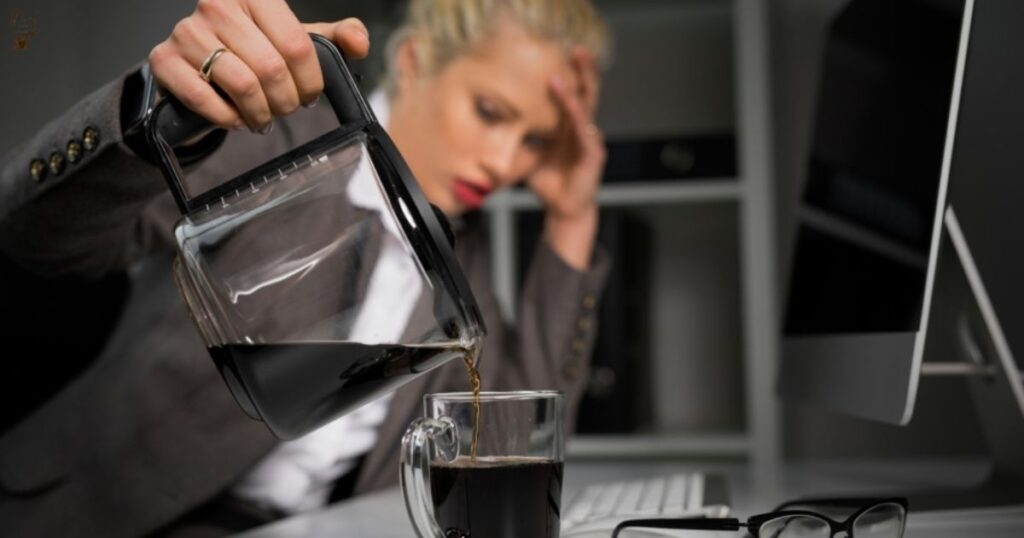
❌ Potential Downsides:
- May cause jitters in caffeine-sensitive people
- Can lead to dehydration if overconsumed
- Excess sugar in sweet tea may cause weight gain
👉 Key Takeaway: If you’re sensitive to caffeine, opt for decaf sweet tea or drink in moderation.
6. Which Type of Sweet Tea Has the Most Caffeine?
Different types of tea have varying caffeine levels:
Black Tea (Most Caffeine)
- The most common tea used in sweet tea
- 40-70 mg of caffeine per cup
Green Tea (Moderate Caffeine)
- Contains 25-45 mg per cup
- Lighter and slightly healthier option
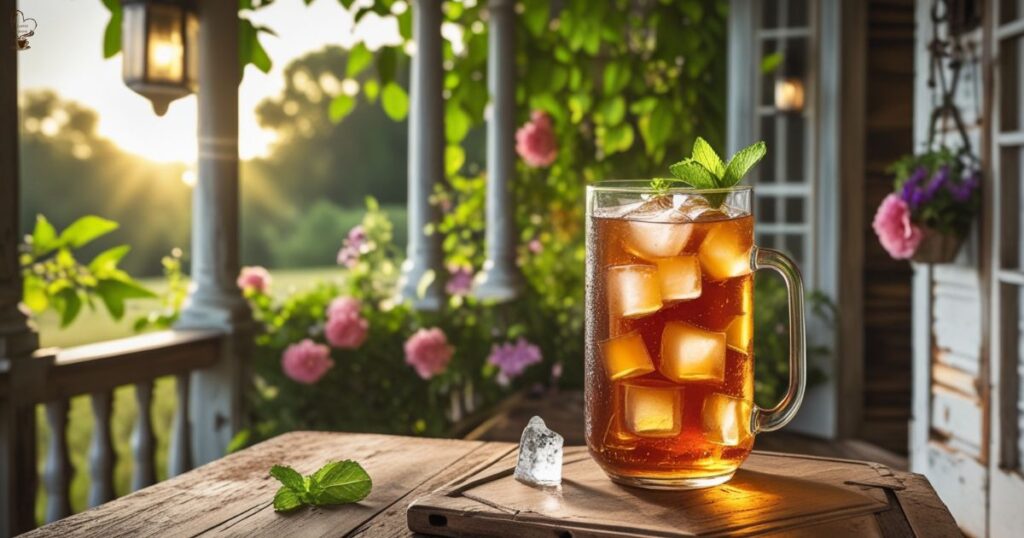
Oolong Tea (Medium Caffeine)
- 30-50 mg of caffeine per cup
- Less bitter than black tea
White Tea (Least Caffeine)
- 15-30 mg of caffeine per cup
- Mildest option with the least caffeine
👉 Key Takeaway: If you want a strong caffeine boost, stick with black tea. If you prefer less caffeine, opt for white or green tea.
7. How to Reduce Caffeine in Sweet Tea?
If you love sweet tea but want less caffeine, here are some tips:
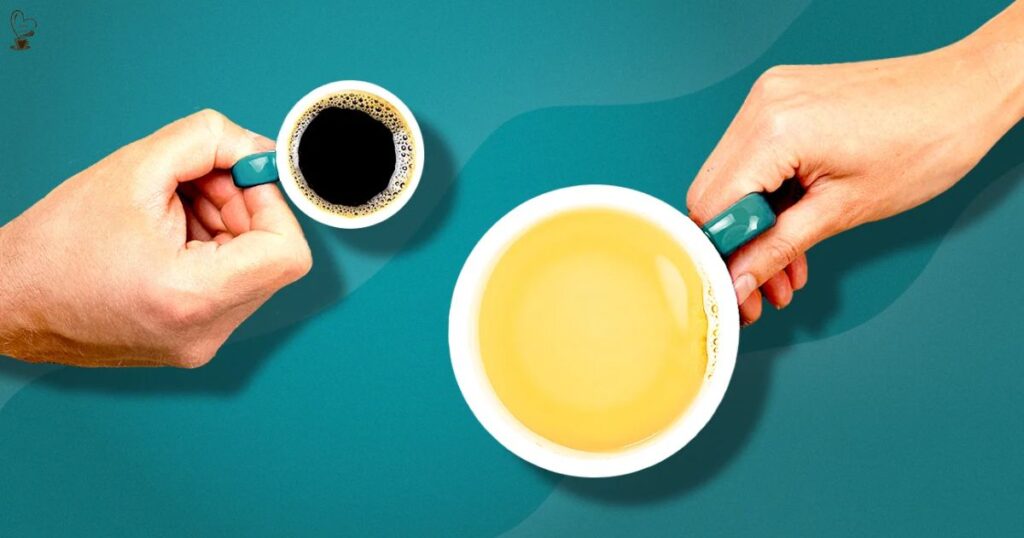
✅ Use decaffeinated black tea – Keeps the flavor but reduces caffeine.
✅ Brew for a shorter time – Steeping tea for less time = less caffeine.
✅ Mix with herbal teas – Chamomile or rooibos tea are caffeine-free alternatives.
👉 Key Takeaway: You can still enjoy sweet tea with reduced caffeine by switching tea types or using decaf tea.
8. Is Decaffeinated Sweet Tea as Good as Regular Sweet Tea?
Many people worry that decaf sweet tea won’t taste as good as regular sweet tea. However, modern decaffeination methods, similar to those used for Decaf Coffee Beans, help retain most of the flavor while removing caffeine.
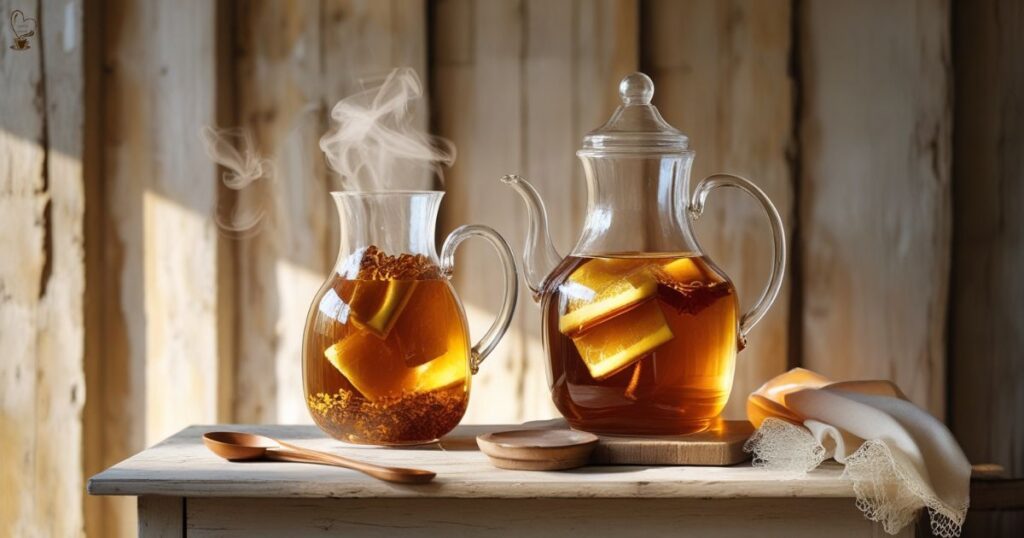
✔️ Pros of Decaf Sweet Tea:
- Same smooth and refreshing taste
- No caffeine-related side effects
❌ Cons of Decaf Sweet Tea:
- Some brands may have a slightly milder flavor
👉 Key Takeaway: If you want sweet tea without caffeine, decaf is a great choice!
Conclusion
So, does sweet tea have caffeine? Absolutely! However, the caffeine content depends on brewing time, tea type, and serving size.
If you’re looking for a moderate caffeine boost, sweet tea is a great alternative to coffee. Want to cut caffeine? Try decaf sweet tea or herbal options.
FAQs About Does Sweet Tea Have Caffeine?
Does McDonald’s Sweet Tea Have Caffeine?
Yes! McDonald’s sweet tea does have caffeine because it is made from black tea. A 16 oz cup contains approximately 50-60 mg of caffeine. This makes it a moderate caffeine source, lower than coffee but higher than soda.
How Much Caffeine in Unsweet Tea?
Unsweet tea contains approximately 20-60 mg of caffeine per 8 oz, depending on the brewing time and tea type. Its caffeine level is similar to sweet tea since both are made from black tea. Longer steeping results in higher caffeine content.
Is There Caffeine in Sweet Tea?
Unsweet tea contains approximately 20-60 mg of caffeine per 8 oz, depending on the brewing time and tea type. Its caffeine level is similar to sweet tea since both are made from black tea. Longer steeping results in higher caffeine content.
What is the Best Alternative to Sweet Tea Without Caffeine?
The best caffeine-free alternative to sweet tea is rooibos or chamomile tea. Rooibos has a rich, smooth flavor, while chamomile offers a light, floral taste. Both are naturally caffeine-free and can be enjoyed hot or iced.
Is There a Lot of Caffeine in Sweet Tea?
Sweet tea contains approximately 2.56 mg of caffeine per fluid ounce. This means an 8 oz serving has around 20 mg of caffeine, while a 16 oz cup contains nearly 41 mg. The exact amount varies based on brewing time and tea strength.

